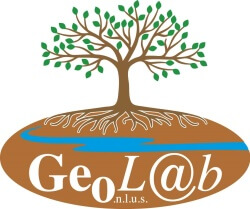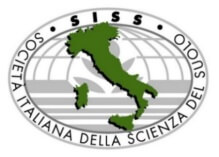An integrated approach to prevent the erosion of salt marshes in the lagoon of Venice
DOI:
https://doi.org/10.6092/issn.2281-4485/5799Keywords:
salt marsh erosion, Venice lagoon, soil bioengineering techniques, sustainabilityAbstract
The loss of coastal habitats is a widespread problem in Europe. To protect the intertidal salt marshes of the lagoon of Venice from the erosion due to natural and human causes which is diffusely and intensely impacting them, the European Commission has funded the demonstrative project LIFE VIMINE. LIFE VIMINE aims to protect the most interior, hard-to-access salt marshes in the northern lagoon of Venice through an integrated approach, whose core is the prevention of erosion through numerous, small but spatially-diffuse soil-bioengineering protections works, mainly placed through semi-manual labour and with low impact on the environment and the landscape. The effectiveness of protection works in the long term is ensured through routine, temporally-continuous and spatially-diffuse actions of monitoring and maintenance. This method contrasts the common approach to managing hydraulic risk and erosion in Italy which is based on large, one-off and irreversible protection actions. The sustainability of the LIFE VIMINE approach is ensured by the participatory involvement of stakeholders and the recognition that protecting salt marshes means defending the benefits they provide to society through their ecological functions, as well as protecting the jobs linked to the existence or conservation of this habitat.
References
AIROLDI L., BECK M. W. (2007) Loss, status and trends for coastal marine habitats of Europe. Oceanography and Marine Biology: an Annual Review, 45
BECK M. W., HECK JR K. L., ABLE K. W., CHILDERS D. L., EGGLESTON D. B., GILLANDERS B. M., WEINSTEIN M. P. (2001)The identification, conservation, and management of estuarine and marine nurseries for fish and invertebrates: A better understanding of the habitats that serve as nurseries for marine species and the factors that create site-specific variability in nursery quality will improve conservation and management of these areas. Bioscience, 51
BONOMETTO L. (2003) Ecologia applicata e ripristino ambientale nella Laguna di Venezia: analisi e classificazione funzionale delle “barene” e delle tipologie di intervento sulle barene." Comune di Venezia, Venezia.
CARNIELLO L., DEFINA A., FAGHERAZZI S., D'ALPAOS L. (2005) A combined wind wave-tidal model for the Venice lagoon, Italy. Journal of Geophysical Research – Earth Surface, 110
CHMURA G. L., ANISFELD S. C., CAHOON D. R., LYNCH J . C. (2003) Global carbon sequestration in tidal, saline wetland soils. Global Biogeochemical Cycles, 17
Comune di Venezia (2001) Progetto LIFE Natura 1999. BARENE ‒ protezione e recupero con tecniche di ingegneria naturalistica. Venezia.
COSTANZA R., D’ARGE R., DE GROOT R., FARBER S., GRASSO M., HANNON B., VAN DEN BELT M. (1997) The value of the world’s ecosystem services and natural capital. Nature, 387
D'ALPAOS L. (2010) Fatti e misfatti di Idraulica Lagunare. La laguna di Venezia dalla diversione dei fiumi alle nuove opere alle bocche di porto." Istituto Veneto di scienze, lettere ed arti, Venezia.
DEEGAN L. A., HUGHES J. E., ROUNTREE R. A. (2000) Salt marsh ecosystem support of marine transient species. Concepts and controversies in tidal marsh ecology (pp. 333-365). Springer Netherlands.
EEA. (2006) The changing faces of Europe’s coastal areas. European Environment Agency report 6/2006. EEA, Copenhagen.
KADLEC R. H., KNIGHT R. L. (1996) Treatment wetlands. CRC Press, Boca Raton.
KING S. E., LESTER J. N. (1995) The value of salt marsh as a sea defence. Marine Pollution Bulletin, 30
MEA. Millennium Ecosystem Assessment (2005) Ecosystems and Human Well-being: Biodiversity Synthesis." World Resources Institute, Washington DC.
REED M. S. (2008) Stakeholder participation for environmental management: a literature review. Biological Conservation, 141
SHEPARD C. C., CRAIN C. M., BECK M. W. (2011) The protective role of coastal marshes: a systematic review and meta-analysis. PLoS One, 6(11), e27374.
VALIELA I., TEAL J. M. (1979) The nitrogen budget of a salt marsh ecosystem. Nature, 280
Downloads
Published
How to Cite
Issue
Section
License
Copyright (c) 2015 Alberto Barausse, Laura Grechi, Nevenka Martinello, Tommaso Musner, Dario Smania, Alberto Zangaglia, Luca Palmeri
Copyrights and publishing rights of all the texts on this journal belong to the respective authors without restrictions.
Articles published since 2020 are licensed under a Creative Commons Attribution 4.0 International License:
Previous articles are licensed under a Creative Commons Attribution-NonCommercial 3.0 Unported License:











